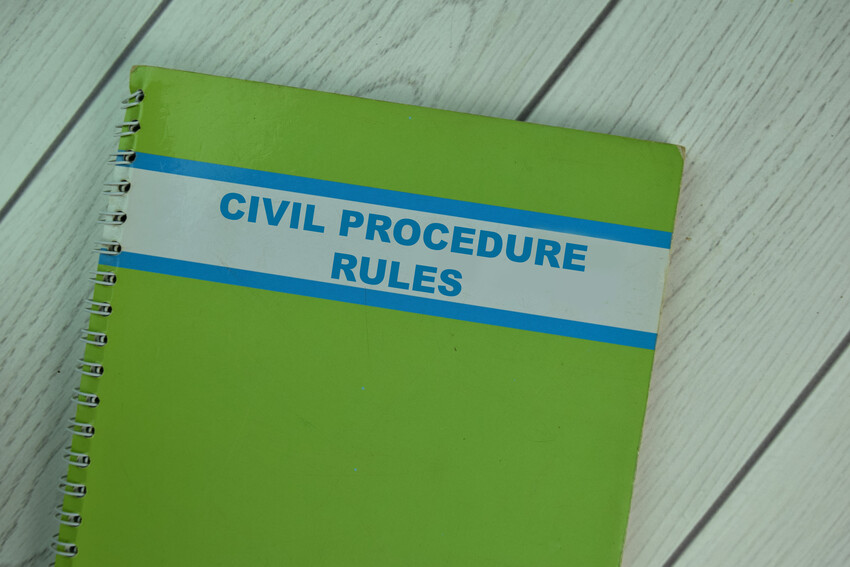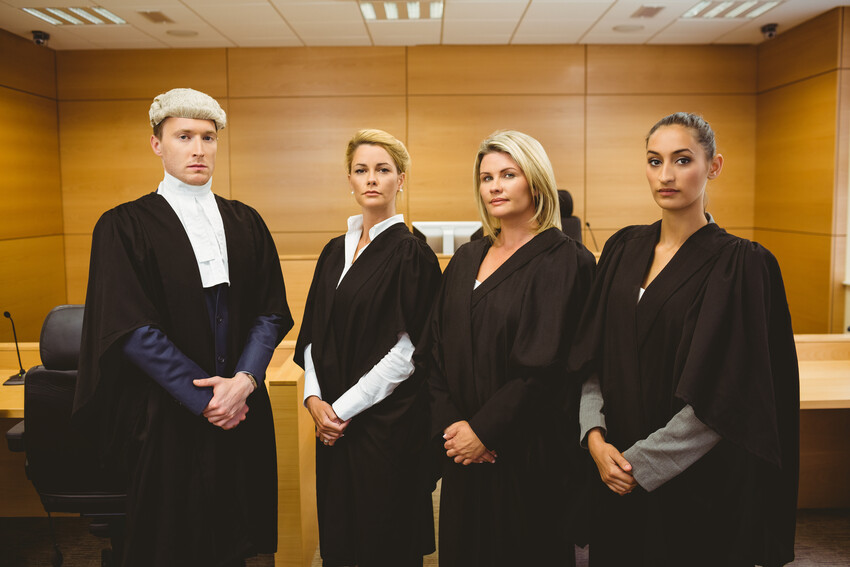What Is the Fast Track in UK Civil Litigation and Who Can Use It?
If you're thinking about taking someone to court, or defending a claim brought against you, and the amount of money involved is between £10,000 and £25,000, there's a good chance your case will be placed on what’s known as the Fast Track. This is part of the civil court system in England and Wales; it’s designed to deal with mid-sized disputes that do not require lengthy trials or complex legal proceedings.
Do You Need a Solicitor to Go to Court in a Fast Track Case?
Many people believe they have to use a solicitor when going to court, but that isn’t always the case. In fact, increasing numbers of people are choosing to represent themselves, either fully or with selective professional support. These individuals are referred to as litigants in person (LiPs).
Civil Procedure Rules Explained for Litigants in Person (LiPs)
The court process itself is governed by something called the Civil Procedure Rules (CPR). These rules outline the steps parties must follow, from filing a claim to presenting evidence and attending a hearing. They apply to everyone, whether you're legally represented or not, and the court expects all parties to follow them properly.
What to Expect from a Typical Fast Track Court Case in England and Wales
Firstly, the other side (called the defendant) will have a chance to reply once a claim form is issued in the Court. A defendant will have fourteen days in which to admit or acknowledge a claim. If the defendant denies, but acknowledges it, they will have a further fourteen days in which to serve a defence to the claim.

Fast Track cases usually follow this pattern:
- The court will issue a Directions Questionnaire, which will also have an Allocation to Track section
- The court will review the Directions Questionnaire and decide on the appropriate Track to allocate the claim
- The court will then make an order outlining how the claim will proceed and what is expected of the Parties
- Witness Statements will be prepared and exchanged in line with the directions of the order
- If Expert Evidence is required, one expert is usually used and is instructed either jointly or independently.
- Disclosure is the next step. Both sides exchange documents that are relevant to the dispute.
- The court may order that the parties enter into Mediation in an attempt to settle the claim pre-hearing
- Final step if mediation fails, the court will schedule a trial hearing, often lasting no more than a day.
Using Meriden Legal for Fixed-Fee Help with Court Documents and Claims
To help manage this process without the cost of a solicitor, services like Meriden Legal and Access 2 Barristers Direct offer an excellent middle ground. Instead of taking on the cost and commitment of full representation, these services allow you to access professional help and guidance where it matters most as a low-cost alternative to employing a solicitor.
Meriden Legal specialises in assisting individuals who are navigating the court process independently. They offer fixed-fee packages, document preparation, and procedural advice. You stay in control, but benefit from their experience to keep things on track.

Access 2 Barristers Direct: Court Representation Without a Solicitor
Access 2 Barristers Direct gives litigants in person direct access to qualified barristers. That means if you need someone to represent you in court or help build your legal arguments before a hearing, you can get exactly that without needing a solicitor to make the introduction. In the majority of cases, where a solicitor is involved, they will insist that you agree to instruct a barrister to work alongside them. The solicitor will use the barrister throughout the case.
What Are Adverse Costs in Civil Litigation and How Can You Avoid Them?
One important area to understand is that the Fast Track is the issue of costs. Unlike the Small Claims court, the Fast Track court is cost-bearing for both Parties. Even if you're acting as a litigant in person, you could still be ordered to pay the other side’s legal costs if you lose. This is known as an adverse costs order, and it poses a significant risk in Fast Track cases. The general rule is that the losing party pays the winner’s reasonable legal costs, subject to limits.
How Meriden Legal Helps Reduce Legal Costs in Fast Track Claims
Here’s where the solicitor-less model offers a practical advantage. If you use Meriden Legal, your own costs are capped and predictable. You avoid the steep hourly rates that come with traditional solicitors. So, if you win, your own outlay is minimal. If you lose, the amount you’ve spent on your own case is significantly less than it would have been with full representation.
If you choose to employ the services of a solicitor and then lose the case, you may face paying two sets of legal costs—your own and the other party’s. That can be financially devastating and, in many instances, disproportionate to the value of the claim.
By contrast, using Meriden Legal limits that exposure. You receive professional assistance without incurring unnecessary financial risk. It doesn’t remove the possibility of having to pay the other side’s costs if you lose, but it ensures your own budget remains under control.
Final Thoughts: Getting Court Support Without a Traditional Law Firm
If you're considering legal action as a Claimant or defending a claim as a Defendant, but are concerned about the costs or complexity, then the Fast Track process is something you can navigate with the right support. You don’t need to go in blind, nor do you need to hand your case over entirely.
With the right balance and support from Meriden Legal for guidance and Access2BarristersDirect for legal opinion and court advocacy, you can take control of your case and stand a real chance of success, without overcommitting your time or money.
“Litigation is not always about winning, it’s about knowing when to get out”
Knowing when to walk away and settle is not weakness. It’s commercial sense; it requires objectivity, self-awareness, and sometimes the courage to admit that a pyrrhic victory, where the costs outweigh the outcome, is not a win at all.




